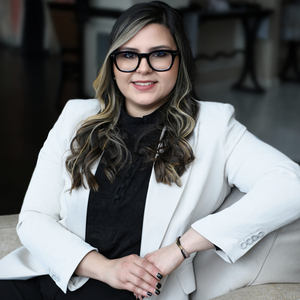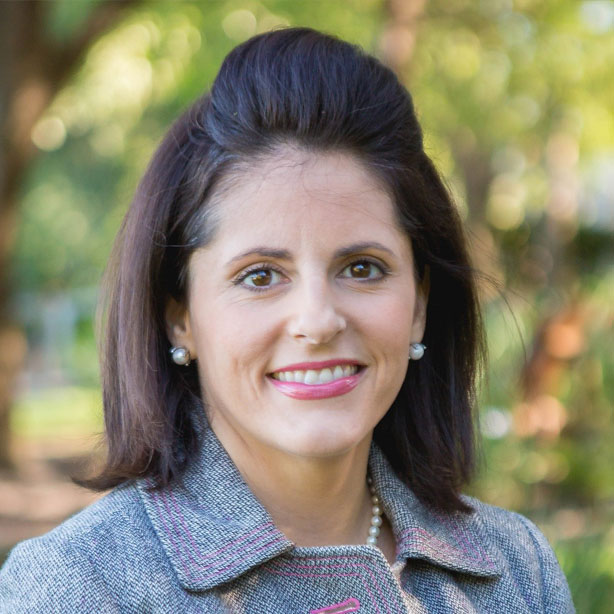The Orlando Law Group
Power of Attorney in Florida
An essential part of planning your estate is preparing for the risk that you could become incapacitated or unable to manage your interests. This could happen due to an accident, aging, disease, or surgery. Regardless of why you need someone else to make legal decisions on your behalf, it is wise to establish an Orlando power of attorney (POA) document.
At The Orlando Law Group, we offer a wide range of services in many areas of law. An Orlando estate planning attorney from our team can guide you in selecting the right type of POA for your needs and goals. Our team of attorneys will put their experience and knowledge to work for you to build a full plan for your estate and other needs. Contact us today to learn more.
Why do I need to establish a POA?
When planning your will, you select someone who will serve as your personal representative or executor. They will be trusted to manage all your assets and legal decisions when you have passed away. A power of attorney works in a similar manner, except it allows that trusted person to handle decisions if you are still alive but unable to make the choices for yourself.
A power of attorney in Orlando, FL can give you and your family peace of mind if you are mentally or physically incompetent. Your bills, business, and other concerns will not be interrupted waiting for you to recover. Everything can continue to run smoothly until you can return to your life. In the case of aging married couples, a POA can provide security if one spouse experiences a disease such as dementia.
There are three main parties involved in an Orlando POA: the principal, the agent, and the third party.
Principal
This is the person who is delegating power of attorney to another person. They are allowing someone they trust to act on their behalf in legal and other matters.
Agent
The agent is the trusted person who is given the power to act on behalf of the principal. They must be at least 18 years old, competent, and reliable.
Third party
A third party is any entity or individual the agent must interact with to execute the POA. This could be a medical provider for a healthcare POA or anyone else required to carry out the agent’s duties under the agreement.
Establishing a POA is a valuable part of the larger task of successful estate planning. Along with trusts, wills, guardianships, and other forms, a power of attorney can be a strong building block for protecting important assets and decisions. Clearly outlining your wishes before the time arrives when you cannot speak or understand decisions will provide comfort and guidance for your family members.
What are the different types of POA in Florida?
At The Orlando Law Group, we assist you in creating the right power of attorney for your needs. We will listen to your circumstances and advise you on which POA will work best for you. Here are three types of POA used in Florida.
Special power of attorney
In rare instances, you may choose to create a special (or limited) power of attorney where an agent can perform a specific act or transaction. For example, if two spouses are selling a property, but one of them cannot physically attend the closing, a limited POA can be used. It allows the attending spouse to sign all papers on behalf of the other partner.
The limited POA in Orlando is only in effect for the described action and expires when that business is concluded. You will not need to void or revoke this type of power of attorney since it will have a specific expiration date.
Healthcare power of attorney
When you need to establish an agent to make decisions on your behalf for medical care, you need a healthcare POA in Orlando. This document specifically addresses healthcare matters and does not apply to financial or asset distribution decisions. For example, if you are incapacitated mentally or physically, such as in a coma after a car accident, your POA agent can speak with doctors and discuss treatment.
More information on healthcare POAs
A healthcare POA is sometimes called an advance directive. You can include language about circumstances when you do not wish doctors to use life-prolonging care, as well as other kinds of treatment according to your personal wishes or religious beliefs.
As with other POAs, your agent must be at least 18 years old and competent. Many spouses name multiple agents, such as their partner and an adult child. With the help of a power of attorney law firm in Orlando, you can write your advance directive so that it clarifies:
- The person or people who can make decisions and communicate those to medical providers on your behalf
- Any wishes about your care and well-being in a medical setting that you would be unable to communicate or decide for yourself
- The medical situations in which you do not want extraordinary life-saving measures, such as CPR or the use of machinery, to be used
An advance directive is not the same as a Do Not Resuscitate (DNR) order that you may have on your medical record. While you may include language to that effect, a DNR does not give any power to your agent to negate this choice or make another one on your behalf.
Durable power of attorney
When you think of a POA, this kind of document is typically what you might have in mind. Individuals will use a durable power of attorney to manage financial, legal, and medical decisions on their behalf when they are incapacitated. The agent is a spouse or business partner in most situations, although it can be anyone the principal trusts who is over age 18.
Durable powers of attorney remain in effect until the principal’s death, any specified date, or until the principal revokes the POA (or changes the agent). It is crucial to note that signing a POA removes your right to make decisions for yourself, so you should work closely with an experienced team at a reputable Orlando, FL, power of attorney firm to ensure that:
- Enacting a power of attorney is the best choice for you at the time
- The language of the power of attorney addresses all your concerns
- Your agent is trustworthy and at least 18 years old
- You have a contingency plan if you need to revoke the power of attorney or the agent’s position
Who can I name as POA? What if I change my mind?
According to The Florida Bar, you may choose any competent person 18 years of age or older to serve as your agent. Ideally, they will be someone who is reliable and trustworthy. You may choose a family member, close friend, or business partner to serve in this role.
You can also choose a financial institution, such as a bank or trust company, that offers trust powers. If you make a bank or trust company your agent, it must be located in Florida and authorized to conduct business here.
If you change your mind, Section 709.2110 of the Florida Statutes states that you can revoke the POA by writing a new POA. It must reference the old one, and you must notify the former agent their position is no longer valid. You should work with a reputable power of attorney lawyer in Orlando, FL, to ensure the new POA document effectively negates the previous document.
If the new power of attorney is not correctly written and the agent is not notified of its revocation, you could face legal concerns if the agent attempts to dispute the decision.
Naming multiple agents
According to the law, you can name multiple agents. This is generally not recommended since individuals or entities may disagree on decisions yet have equal power. In these situations, a stalemate could result in a delay of critical actions.
However, there are times when having two or more agents can be beneficial. For example, suppose an aging married couple enacts a POA to protect their interests in case one of them develops a terminal disease or suffers a degenerative memory condition, such as Alzheimer’s.
In that case, each spouse can serve as the other’s agent, and they may also select one or more of their adult children. They can also elect another family member as the agent as long as the person is trustworthy and competent.
Does power of attorney expire?
There is no fixed expiration date for a POA. Once the principal dies, the document is no longer valid. After your death, your will is activated, and your personal representative will manage your affairs and assets.
Can I void or terminate a POA?
Yes, you can void a POA. Much like when you decide to change your POA agent, you will need to write a document stating that you are revoking the POA. You will also need to inform the agent of this change.
It is advisable to return to the power of attorney law firm you initially used to create the POA, although you have the right to use a different firm if you want a second opinion on how to proceed when you have decided to terminate your POA.
Let us help protect your rights and future. Give us a call today.
A power of attorney is a valuable document for protecting your assets and interests in the event you become incapacitated. However, understanding the nuances of how to use these documents most effectively for your needs can be confusing without experienced legal guidance.
At The Orlando Law Group, we are a solutions-oriented legal team who have served the Orlando community since 2009. We provide hands-on care coupled with a compassionate and knowledgeable approach to each case. Our professionals offer services in Spanish, Portuguese, and English, building a stellar reputation within Florida and the international community.
Contact The Orlando Law Group to learn more during a confidential consultation. Call us at (407) 512-4394 or use our online form to schedule a meeting today.
Related articles for further reading
Discuss your case with us
or call us
(407) 512-4394





 Jeffrey W. Smith
Attorney
Jeffrey W. Smith
Attorney

 Dan Sanders
Attorney
Dan Sanders
Attorney
 Wendy Hernandez O’Donnell
Attorney
Wendy Hernandez O’Donnell
Attorney









